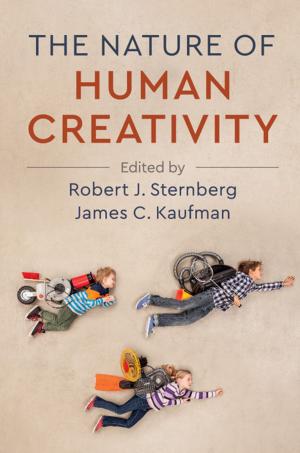Good Thinking
Seven Powerful Ideas That Influence the Way We Think
Nonfiction, Health & Well Being, Psychology, Cognitive Psychology, Social & Cultural Studies, Social Science| Author: | Denise D. Cummins | ISBN: | 9781139410984 |
| Publisher: | Cambridge University Press | Publication: | April 16, 2012 |
| Imprint: | Cambridge University Press | Language: | English |
| Author: | Denise D. Cummins |
| ISBN: | 9781139410984 |
| Publisher: | Cambridge University Press |
| Publication: | April 16, 2012 |
| Imprint: | Cambridge University Press |
| Language: | English |
Do you know what economists mean when they refer to you as a 'rational agent'? Or why a psychologist might label your idea a 'creative insight'? Or how a philosopher could be logical but also passionate in persuading you to obey 'moral imperatives'? Or why scientists disagree about the outcomes of experiments comparing drug treatments and disease risk factors? After reading this book, you will know how the best and brightest thinkers judge the ways we decide, argue, solve problems and tell right from wrong. But you will also understand why, when we don't meet these standards, it is not always a bad thing. The answers are rooted in the way the human brain has been wired over evolutionary time to make us kinder and more generous than economists think we ought to be, and more resistant to change and persuasion than scientists and scholars think we ought to be.
Do you know what economists mean when they refer to you as a 'rational agent'? Or why a psychologist might label your idea a 'creative insight'? Or how a philosopher could be logical but also passionate in persuading you to obey 'moral imperatives'? Or why scientists disagree about the outcomes of experiments comparing drug treatments and disease risk factors? After reading this book, you will know how the best and brightest thinkers judge the ways we decide, argue, solve problems and tell right from wrong. But you will also understand why, when we don't meet these standards, it is not always a bad thing. The answers are rooted in the way the human brain has been wired over evolutionary time to make us kinder and more generous than economists think we ought to be, and more resistant to change and persuasion than scientists and scholars think we ought to be.















